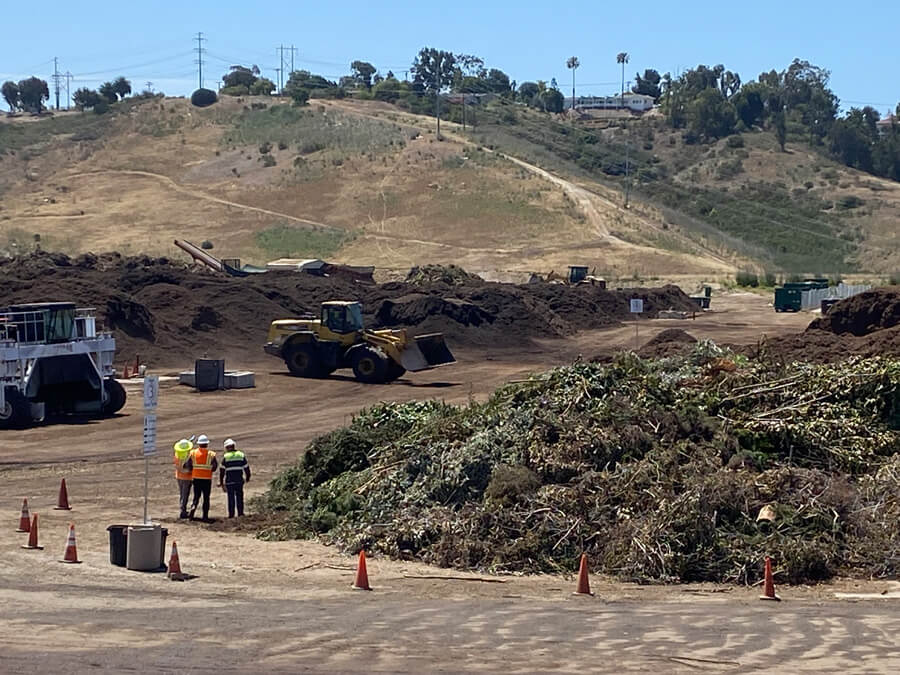The Problem
The extraordinary number of tree species in San Diego County means there is not a deep supply of consistent wood available on a regular/dependable basis AND many species have limited application for common end uses of wood. Added to this is the challenge of utilizing palm (a significant portion of the wood waste problem), all of which present many hurdles in developing a viable wood upcycling campus.
A Solution
Every wood upcycling campus (aggregation and wood processing site) produces lumber, but some will produce more of a single species and can provide a volume and predictability of source for local and perhaps regional markets. To satisfy larger markets and consume all the wood waste coming to the campus, two things must happen: 1) Wood species need to be aggregated from multiple lumber producers to create a critical mass of wood volume; and 2) Alternative carbon-capturing products must play a bigger role in the processing of the entire tree (specifically biochar and compost). The capacity to produce three products and therefore three revenue streams allows a proposed wood upcycling campus maximum flexibility in the way wood and woody debris is utilized.
In 2021-2022 UWE worked with several partners to evaluate the feasibility of a pilot wood upcycling campus in San Diego County (Oceanside), CA and facilitated key stakeholders to create the partnerships to move the projects from the assessment to a pre-planning stage. The current CA partners are weighing regional interest and potential funding to put the human and equipment capital in place to build a zero-waste operation.

